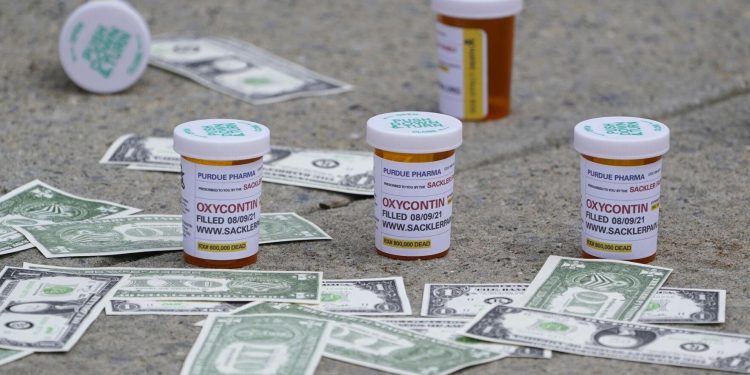By Anthony Hennen | The Center Square
(The Center Square) – Pennsylvania has $1 billion incoming from an opioid settlement, and the Senate Appropriations Committee discussed how to spend it with leaders from the Department of Drug and Alcohol Program.
A global settlement with major pharmaceutical companies will bring in $1.07 billion to the Commonwealth; 70% will go directly to counties, 15% to the General Assembly, and 15% to the entities litigating the settlement, DDAP Secretary Jennifer Smith told legislators. For direct funds to DDAP, Gov. Tom Wolf’s budget request would provide the department with $378 million, most of it from federal funds ($239 million).
DDAP will release its recommendations next month for how to spend the opioid settlement money, but Smith offered an overview of where the department views the highest needs.
“Look at areas where the state or federal funding may not be appropriate to pay for services,” Smith said.
While new treatment centers can’t be built using federal funding, for example, Smith noted the settlement funds could do so. Every county has a single-county authority that serves as a centralized contact for addiction treatment, and they develop strategic plans annually. Smith deferred to their knowledge on how the new funding should be spent and what gaps need to be filled.
“We really want to maximize what’s available. Those gaps are the best first place to start,” Smith said.
Smith also suggested money should go to crisis services to build up their substance use disorder needs. Working with county jails to integrate medication assisted treatment between the county and the criminal justice system could also produce better results, she noted.
Expanding the reach of government services could also go a long way.
“We would also encourage [counties] to take a look at any particular populations within their communities that are currently underserved,” Smith said.
Cultural competency training and bilingual services could be supplemented.
Smith also praised some harm reduction strategies, such as syringe exchanges and fentanyl test strips. “They are proven to save lives and keep people from overdosing and dying,” she said.
Senators were supportive of much of Smith’s testimony and her emphasis on harm reduction, but also saw a need to balance that emphasis with public order and the negative effects of drug use on neighborhoods.
“There’s obviously space that we can work together on to try and be helpful as far as harm reduction, but part of society wants us to enforce the laws as well,” said Sen. Daniel Laughlin, R-Erie.
“When people talk about safe injection sites, you get pushback from the citizens about that too, because they don’t want it in their neighborhood,” Laughlin said. “If you’re going to have a safe injection site in Philadelphia, I don’t know, maybe put it in the mayor’s office, right? Or the DA’s office,” Laughlin said.




